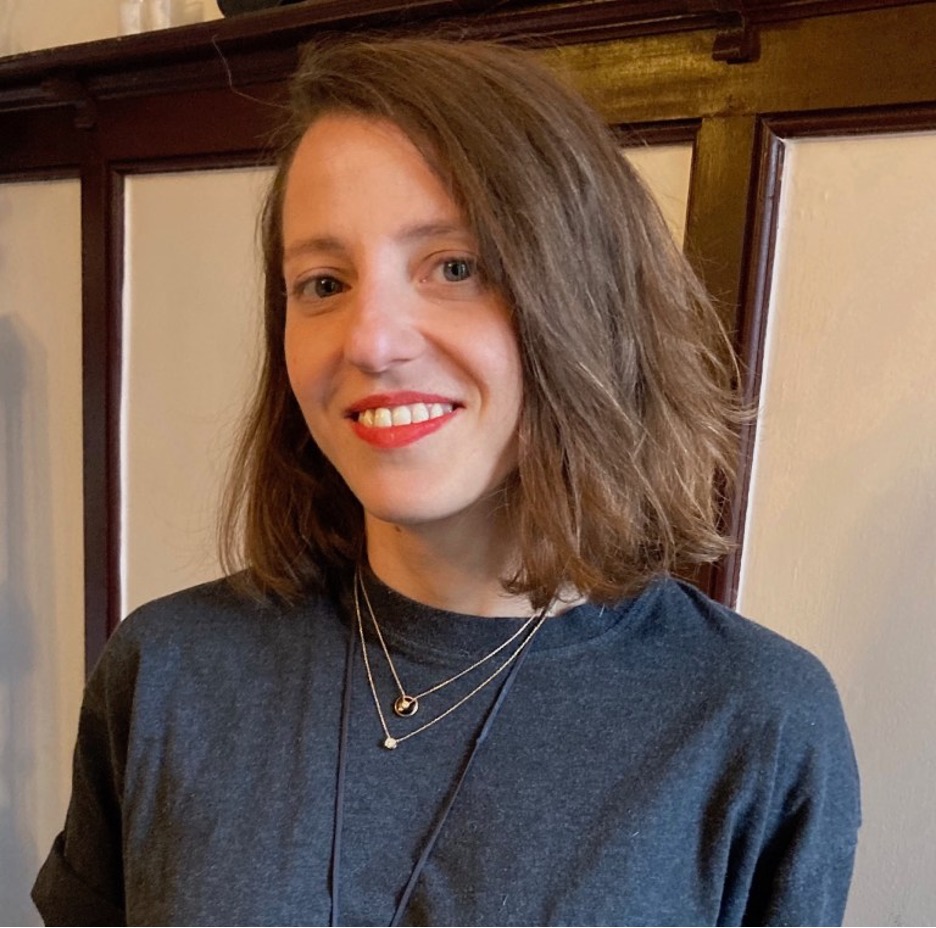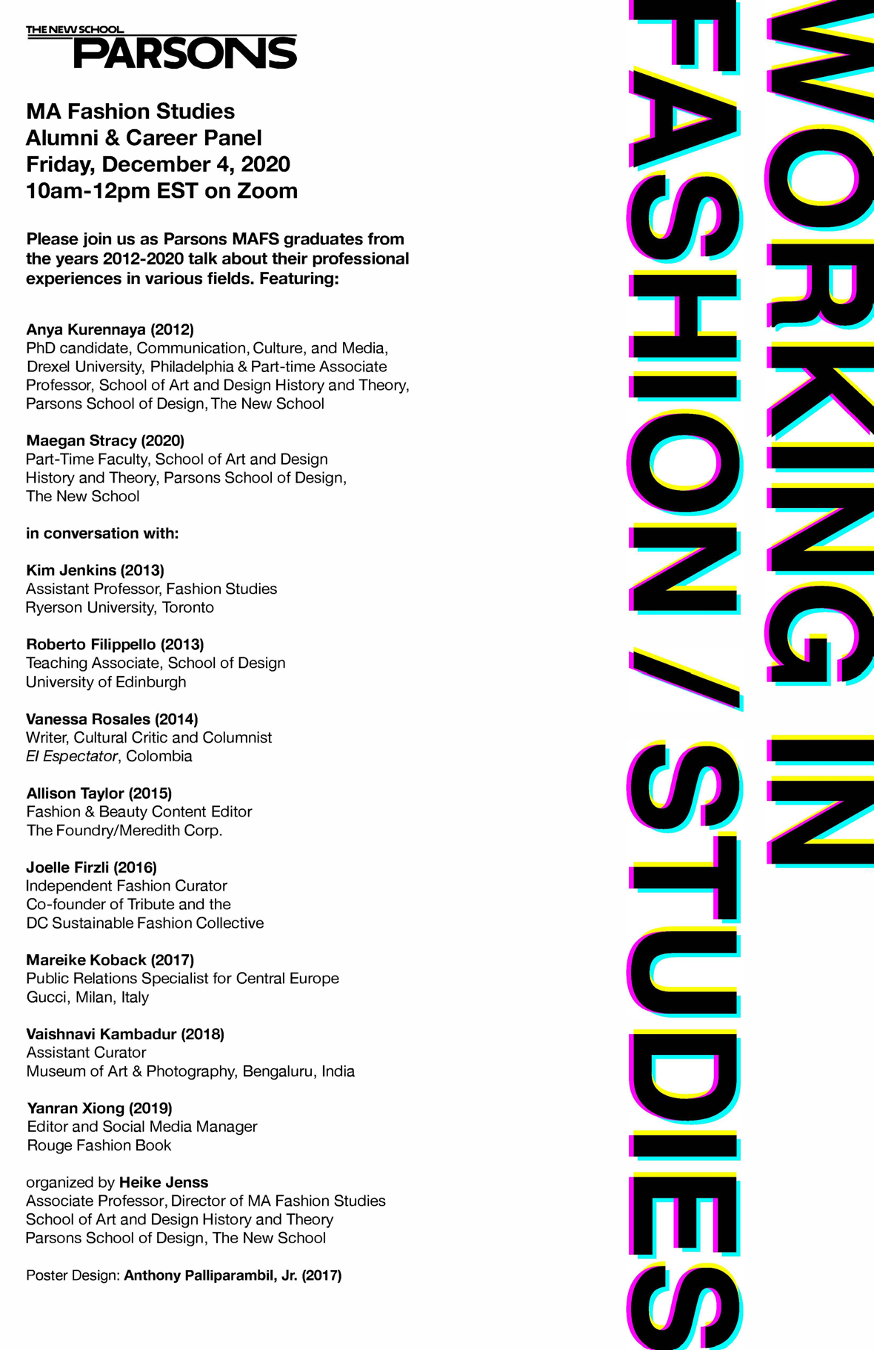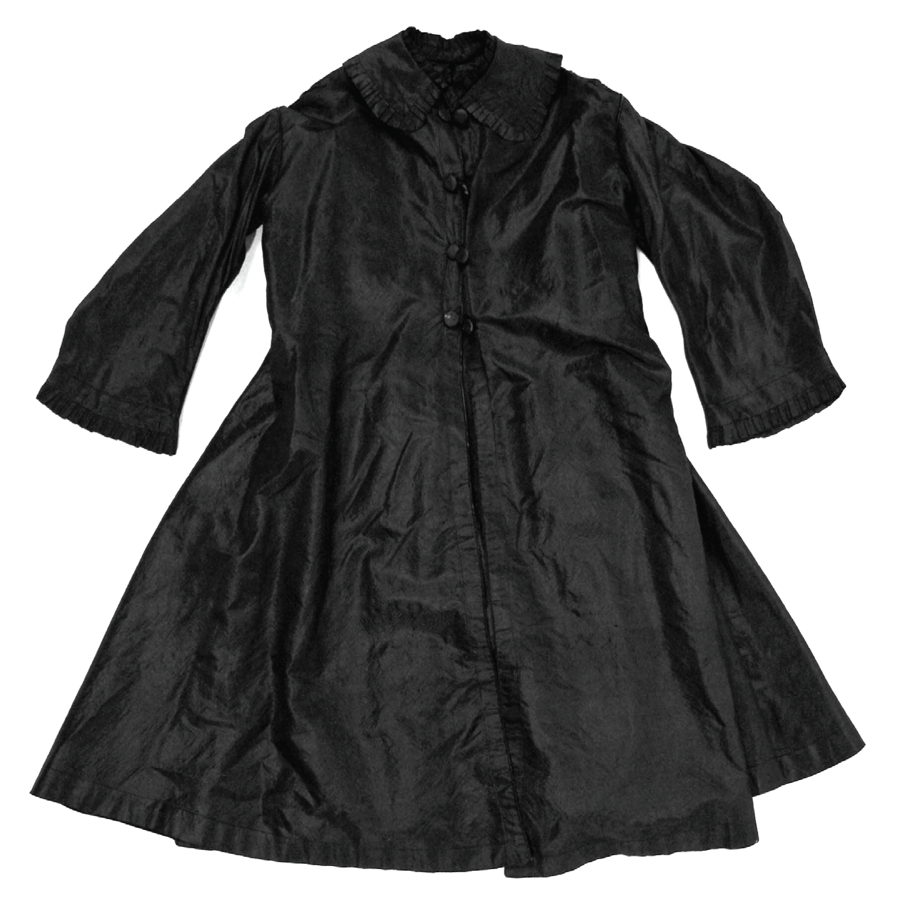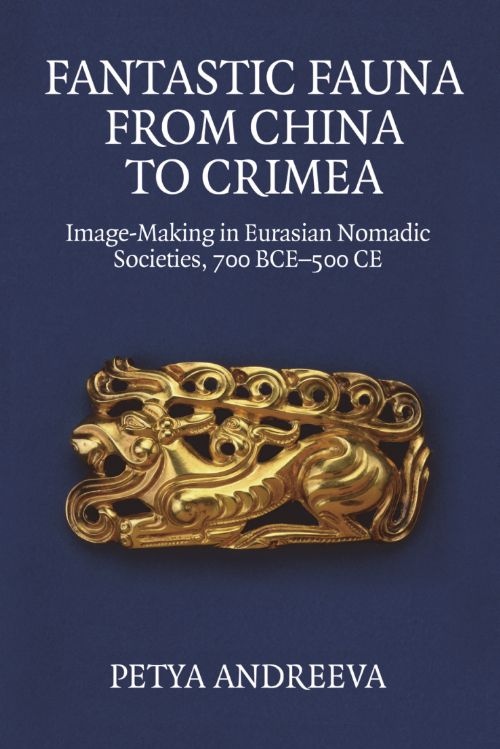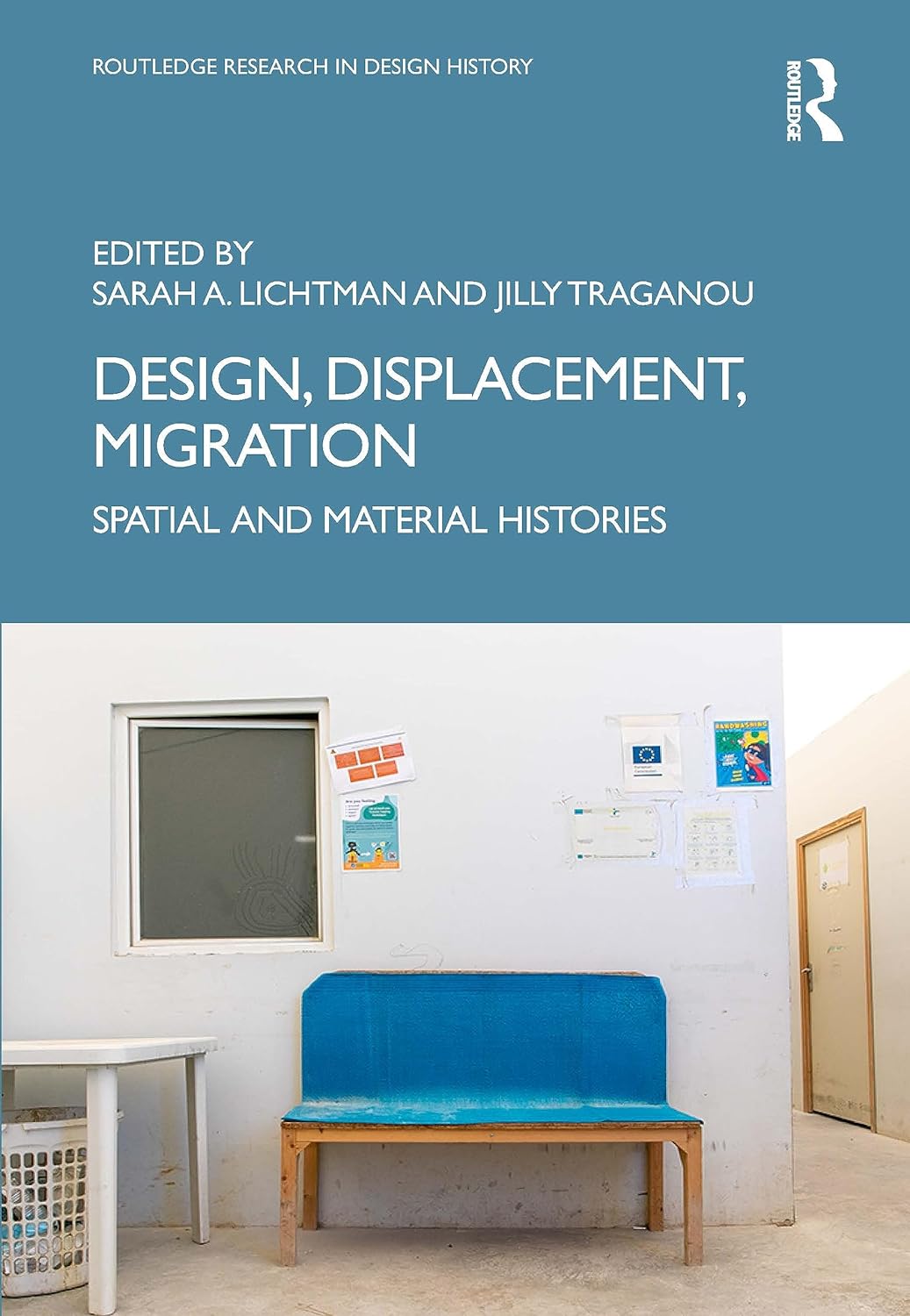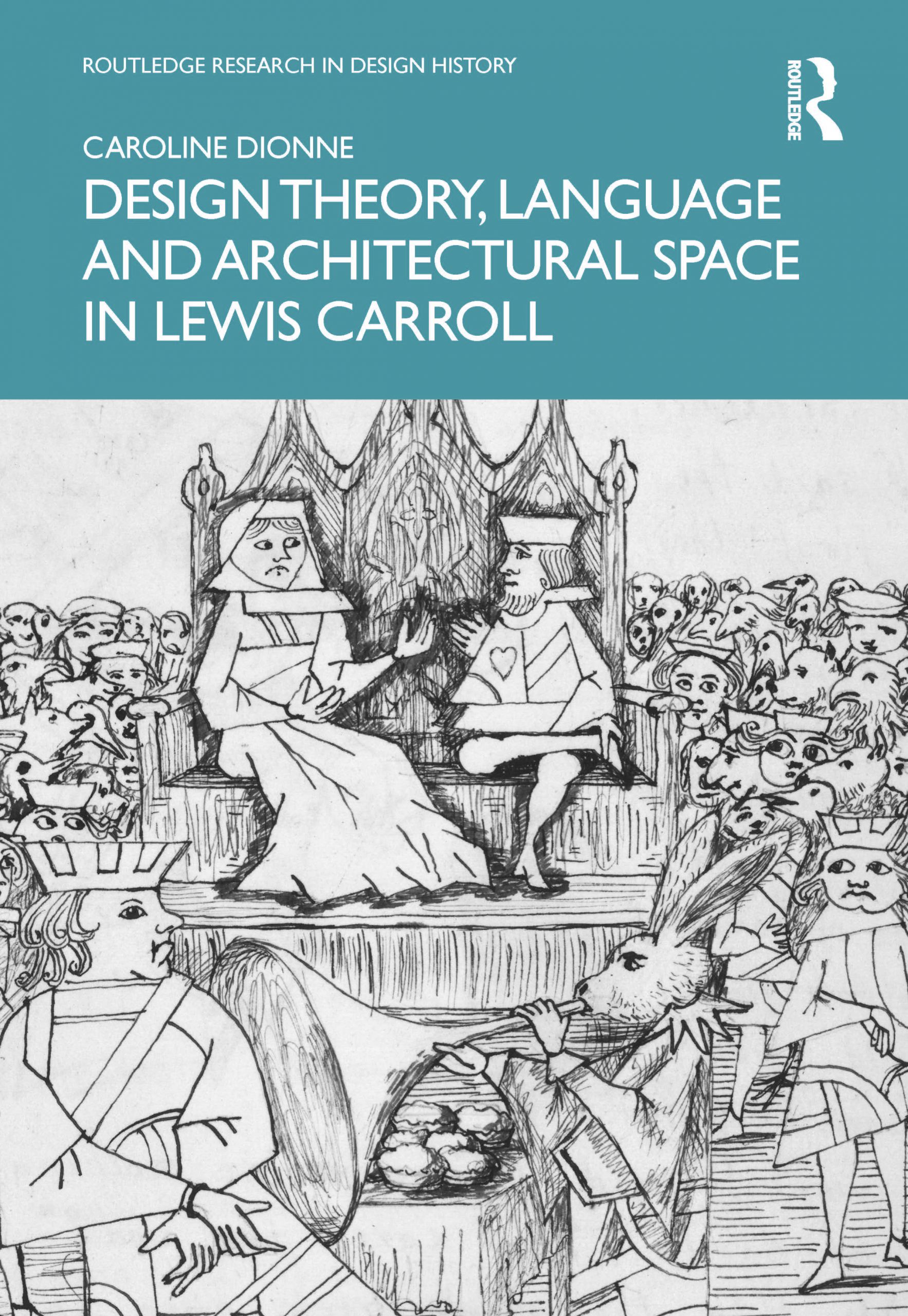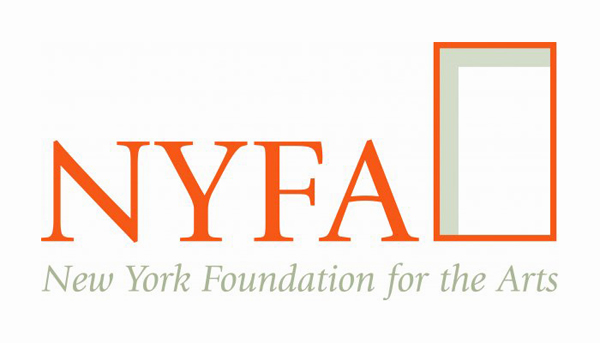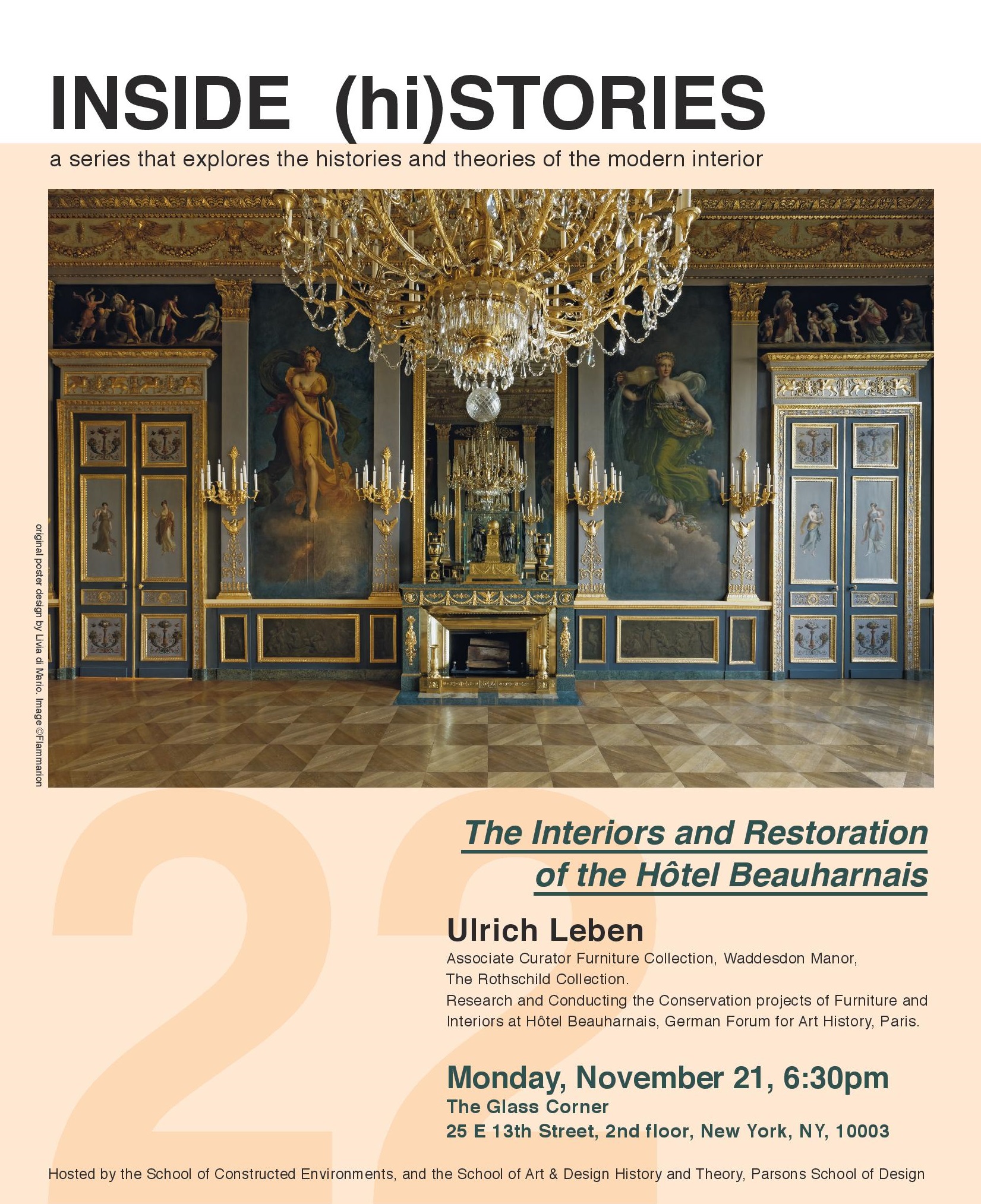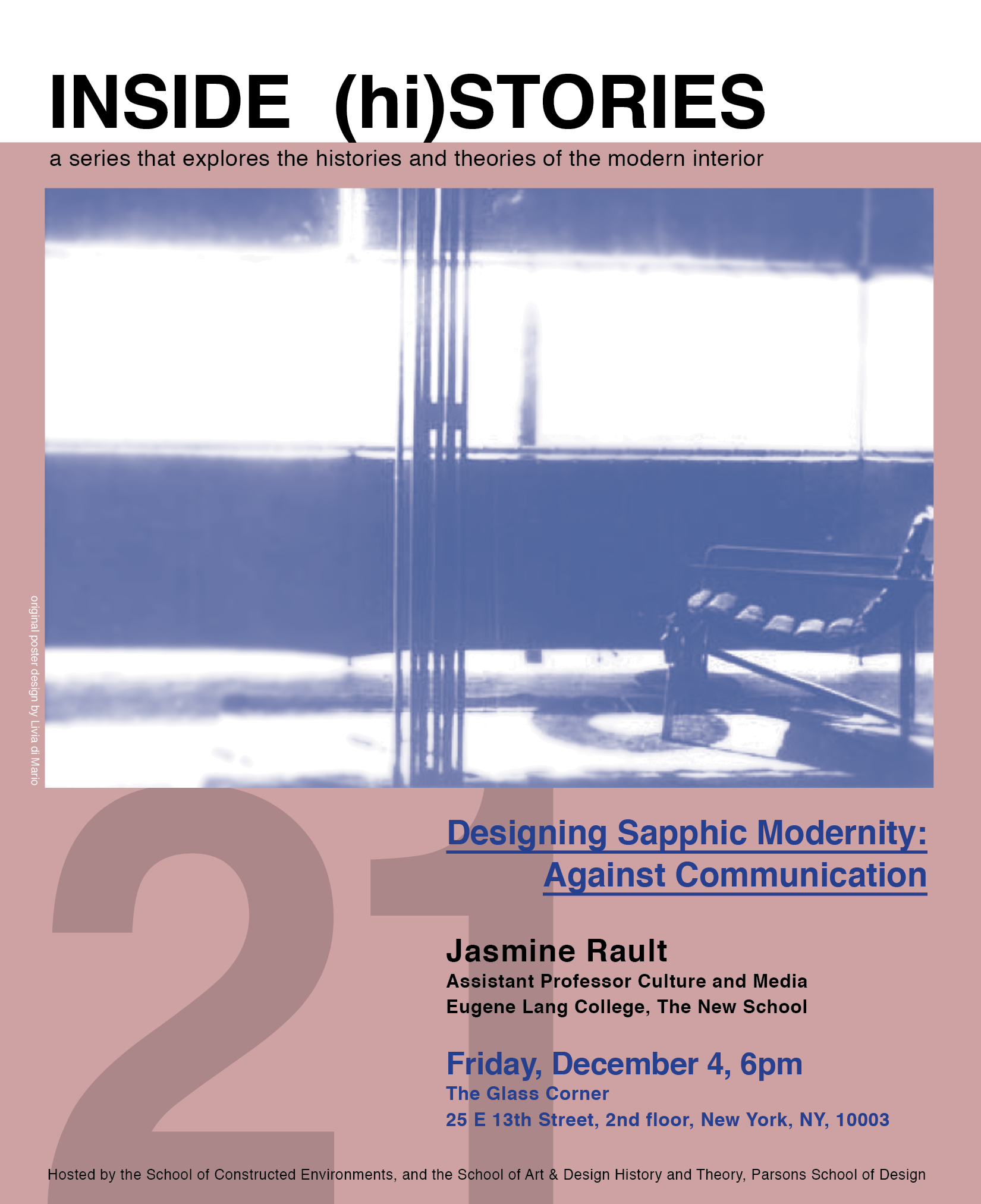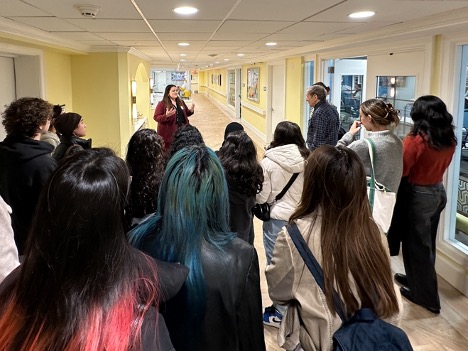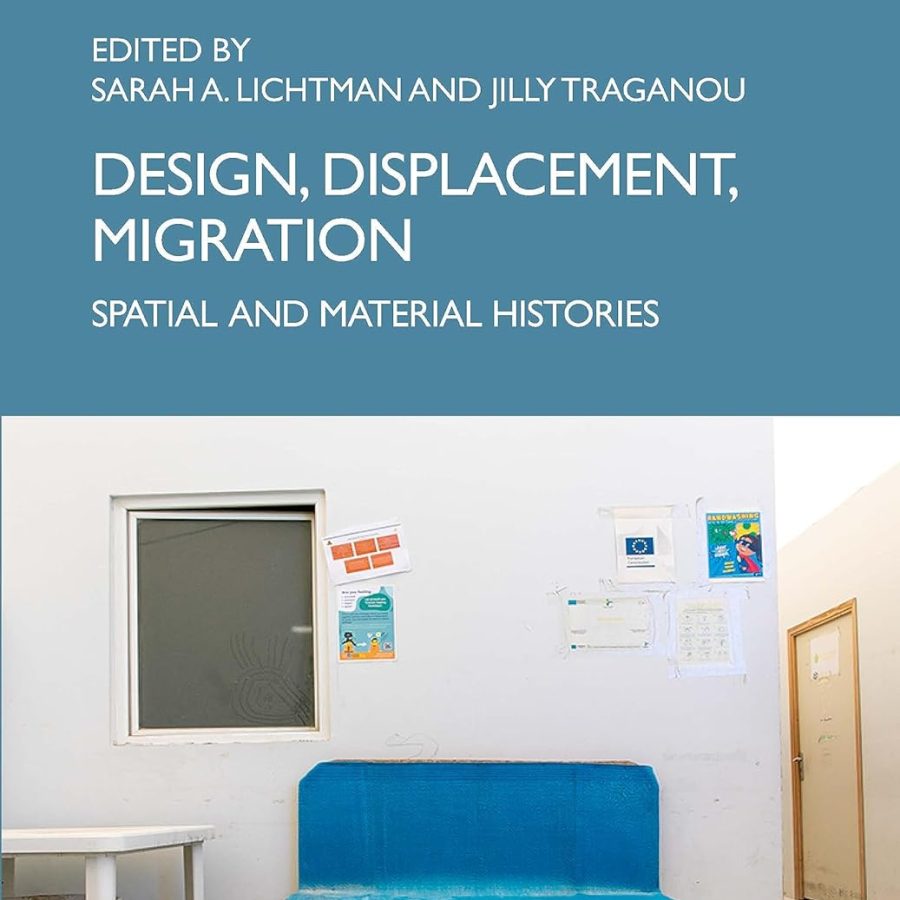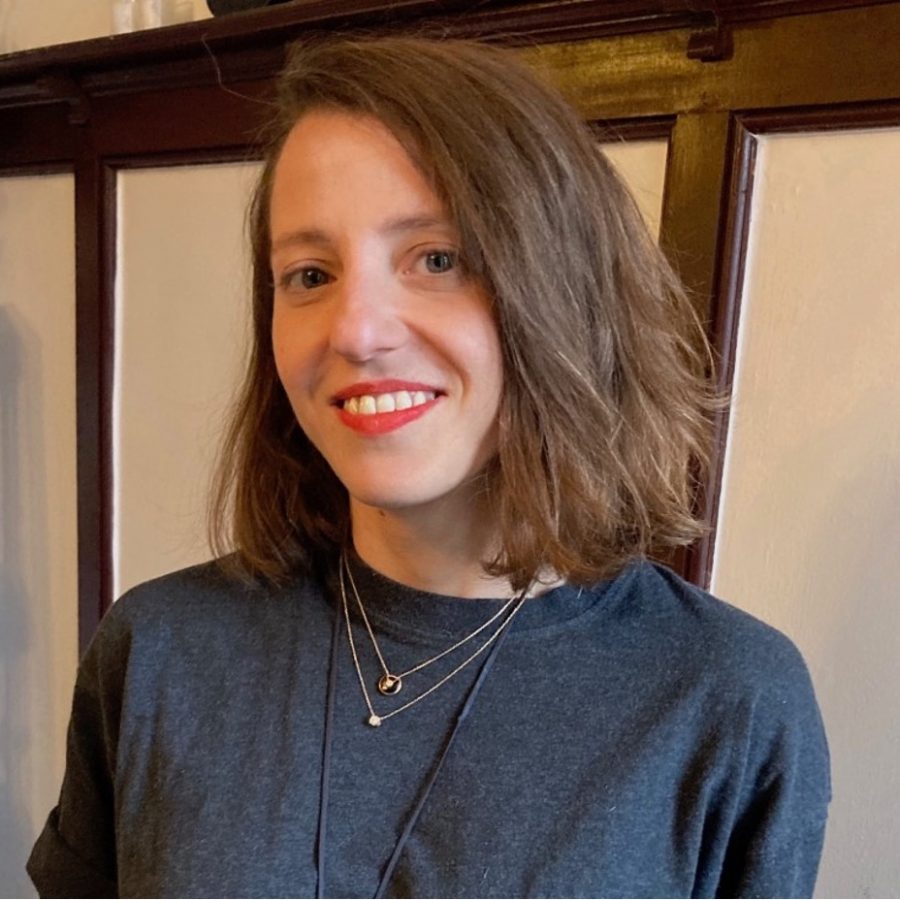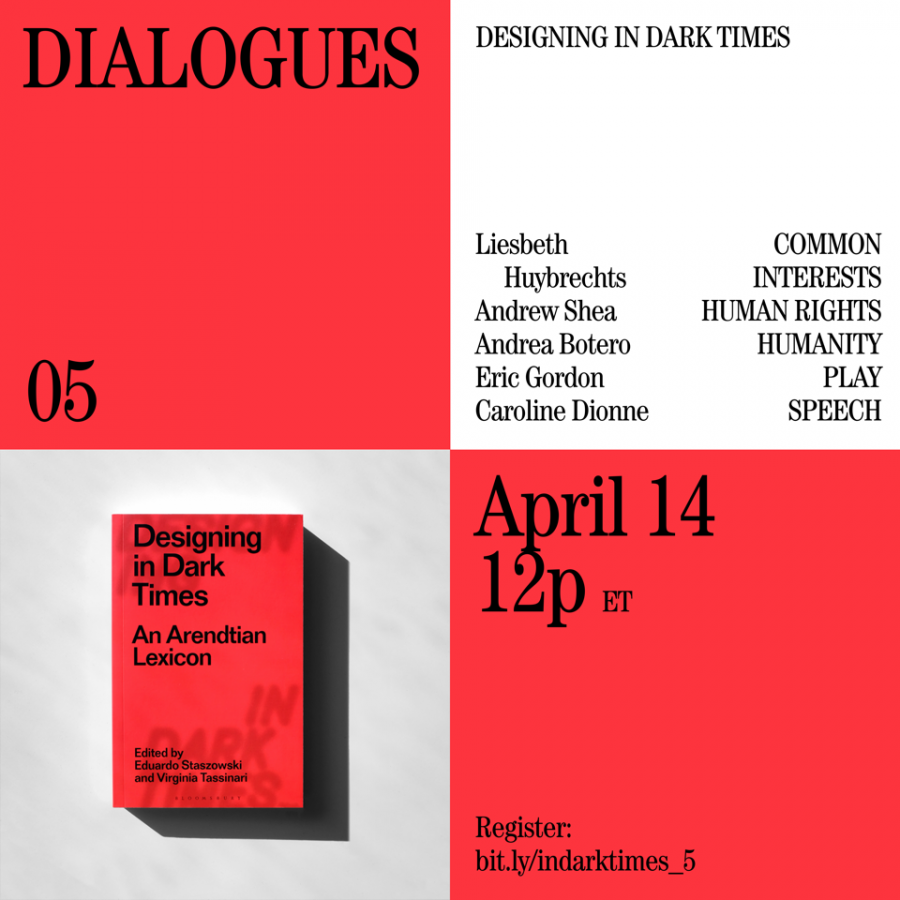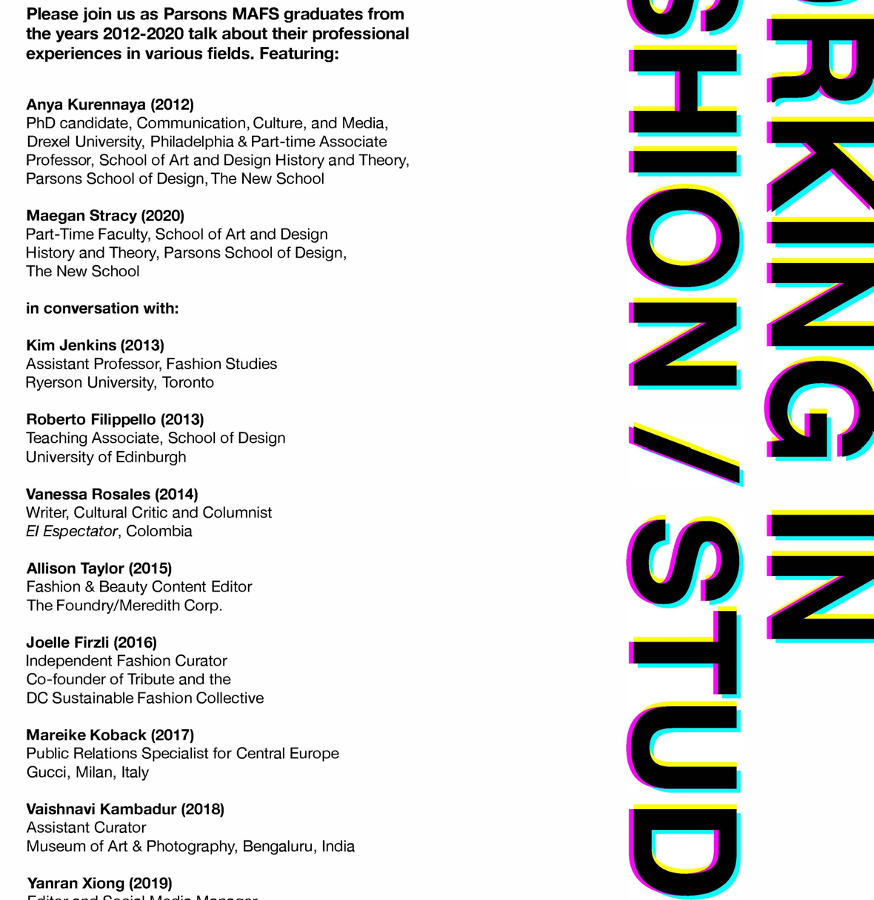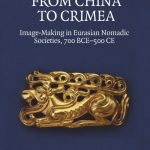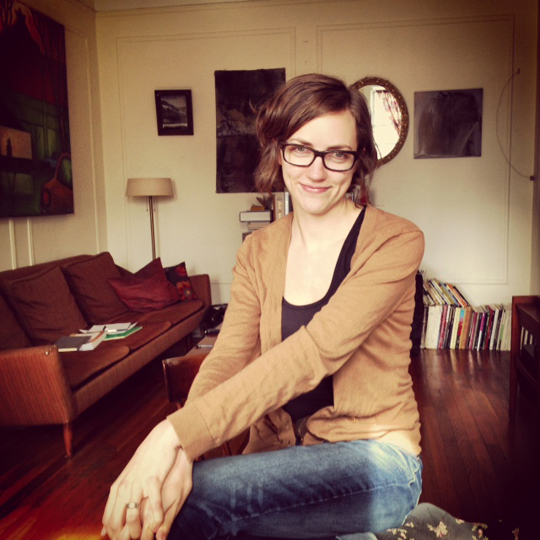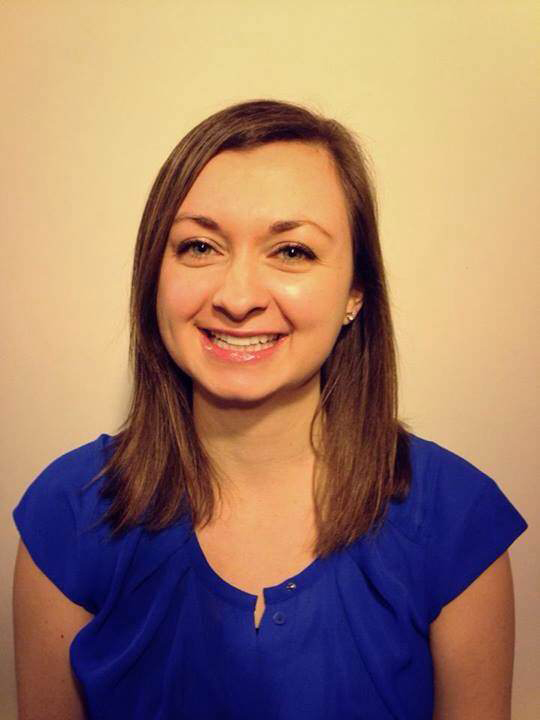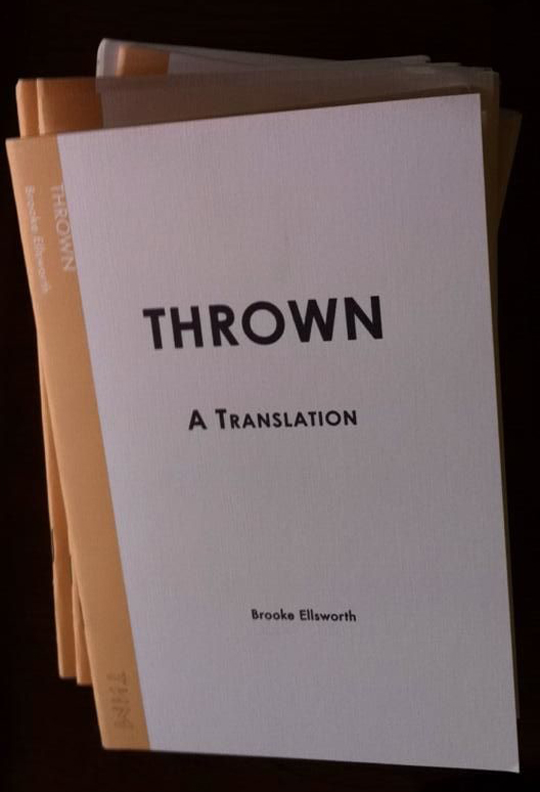 In conversation, ADHT instructors Alex Bennett and Brooke Ellsworth discuss Ellsworth’s newly released chapbook Thrown, a translation of Ovid’s “Echo and Narcissus.” This is Ellsworth’s first chapbook, published this spring by the New Megaphone Press. The following interview first appeared on The New School’s School of Writing blog here.
In conversation, ADHT instructors Alex Bennett and Brooke Ellsworth discuss Ellsworth’s newly released chapbook Thrown, a translation of Ovid’s “Echo and Narcissus.” This is Ellsworth’s first chapbook, published this spring by the New Megaphone Press. The following interview first appeared on The New School’s School of Writing blog here.
Last winter, I read iterations of Thrown while collaborating with Ellsworth in the New School’s Writing Program. I then read the full text last month (enamored with the beauty of the language, again) during a cat-sitting assignment at Ellsworth’s apartment in Queens. With the changing of seasons, our correspondence over the poems has morphed from in-person dialogues to discussions via the web. Here, Ellsworth details her magnetism toward the myth, mutations of meaning, and the haphazard path that led her into the translation project.
AB: In your Facebook description of your new book, you write, “Thrown is a translation of Ovid’s ‘Echo and Narcissus.’ Thrown is a junk-yard dog let loose on the history of translations of Ovid’s ‘Echo and Narcissus.’ Thrown is a story about how I stole a book of Ovid translations when I was a kid.”
Let’s start with the story from your childhood. Tell me more about stealing the Ovid translation.
BE: I grew up on an island—which was like any small town, but with the added confinement of thirty-ish miles of water between oneself and the mainland. Kids find ways of entertaining themselves, exploring impulses, and one of my many phases was that of shoplifting (which will most likely be news to my mother unless she secretly knew the whole time). We would try our hands at different sized items, like little hemp rings from the tourist shops down by the harbor. But the gold rings were always books. Books were the combination of satisfying the short-term impulse as well as, I guess, long-term impulses. A couple pieces of plunder I still possess are E.E. Cummings’ 100 Selected Poems and Ted Hughes’ Tales from Ovid. That’s how I first came upon Metamorphoses, and specifically the story of “Echo and Narcissus,” which was immediately one of my favorites.
AB: How old were you at this time?
BE: Actually I initially thought I was a lot younger until I went back and looked at the year Ted Hughes’ translation came out: 1997 (which would make me 12). Also, looking back, I realized that I was writing poetry from a very young age. Hand in hand with juvenile impulses, I would end up lineating my notebooks. I actually found a bunch in a chest back home a couple years ago. It was a weird (but also from then on) an obvious realization that I’d been writing and rewriting the poem, “Echo and Narcissus,” for a long time.
AB: You submitted Thrown as part of your MFA thesis at The New School. But, last winter, you were initially working on a separate collection of poems. At what point did you decide to return to “Echo and Narcissus” as the subject for your thesis?
BE: I was struggling with this megalith poem called “Anamnesis” with Robert Polito, my advisor. Anamnesis is Greek for recollection, and is also a concept that Plato develops in Meno, I believe, as being a process of learning—that the process of learning is the process of rediscovering knowledge from our past incarnations. This of course raises questions of absurdity (when do we first acquire knowledge if it’s just copies of an “original” experience) and, like, exile from our own insight if it’s just playback. These are good questions, I think, but good in the sense that I’m like, yes, embrace the playback. That anamnesis is way more evocative as a result of these absurdities—that memory is this high exaltation, that it calls forth the actual presence, here and now, of the past, in the kind of way that liturgical reenactment of myths has always done. Actualizing a past event, pressuring it into the present.
Anyway, I was working with a lot of imagery of absorption, specifically the ocean and a subject who is drinking up the entire ocean alongside a gin and tonic, and breaking down physical boundaries as a result. That’s how I stumbled back into the narrative of “Echo and Narcissus.” Except this time I actually turned to the Latin, which I had never done before.
It was from there that it very quickly mushroomed into a much bigger organism, and I didn’t know how to control it. I came back to Robert and showed him what I’d been up to. His response was characteristically astute and pragmatic: “You know you can work on this for your critical thesis.” At that point my face probably melted.
AB: Did you have prior experience with this type of writing?
BE: Translation? Yes and no. I’ve returned to the story of Echo and Narcissus throughout my poetry, with or without knowing it. But I’m also not categorizing Thrown as a translation in the “correct” sense.
AB: The myth of Echo and Narcissus is very much a story about semantics, meanings, adaptation. What does the term “translation” mean for this text?
BE: I believe that the story of Echo and Narcissus is perhaps the story of translation, one that involves shortcomings and misrepresentations, and death (laughter). Death via mutation. All of those things. Johannes Göransson and Joyelle McSweeney of Action Books are two poets who I feel very much in alignment with in regards to translation. I spent equal amounts of time looking at a number of antiquated English translations of “Echo and Narcissus,” and more antiquated typefaces of Latin from which the Enlightenment translator, John Minellius (for example), worked. I brought together all of these Englished works, they were all my source languages. In Deformation Zone, Göransson discusses Christian Hawkey’s experience translating from German and how Hawkey marks translation as his central concern mainly because he didn’t read or speak German at the time. It was this same impulse that drew me to the Latin, to emphasize the fringes of my own knowledge in the way that Echo dwells in the fringes of the forest. The fringes of expression with one’s vocal faculties disabled.
And so, no matter how much time I spent “outside” the Latin and with other translations there was always this inescapable interiority. No matter how external I tried to get with it, I could never really escape the echo chambers. There’s no algebraic way of approaching a source language and pushing it into a target language, let alone five source languages that are all instances of English and instances of Latin.
AB: In your discussion of Echo and Narcissus on Tumblr, you write, “Can we call Narcissus the original? Echo mines his language for what is half-realized, activating her ‘reclaiming zone,’ the ‘fictitious collective memory.’” What do you mean by these terms?
BE: Those specific phrases are taken from Caroline Bergvall’s book Meddle English. She’s describing the project of the author directly. An implication of these phrases that I enjoy is scrutiny of socio-political constructions of power, which ultimately have the most to do with arguments surrounding language-gain and loss and the questions of voice or identity. Not to be confused with narratives of identity.
AB: Is there a particular character’s voice that you’ve been most drawn to in the story?
BE: I think the brilliance of Echo is that she is both constantly resonating and diminishing. What I found when I turned to the Latin was that there was never a point in the story that didn’t deal with this high reverence of world play. Echo saturates the text. I don’t think of Echo and Narcissus as separate, either. The pleasure of returning to Echo and Narcissus’ lack of connection with each other is very much the complete and absurdly redundant connection with each other. Their repartee in the poem is one of ecstatic repetition.
AB: In the “In Nova” section of Thrown, you write “Ovidian history is / founded upon what is seen.” What have you come to see about this story that’s true?
BE: The act of seeing is the least passive engagement with the world that we can enter. But, it is almost dangerously considered to be totally passive. Likewise it’s misleading to think that when Echo metamorphoses she then exits, and the drama turns to Narcissus. Echo blurs our sense of visual and textual boundaries. The word-play, imagery and repetition that surround the telling of Echo’s retelling dominate the poem from beginning to end. The body of Echo is the body of the poem.
AB: I remember talking to you directly following The New Megaphone’s acceptance of your chapbook early last summer. You mentioned that you immediately contacted editor Nate Slawson to make revisions. How much tinkering did you do? When did the “incessant mutations” stop?
BE: They haven’t stopped. The most painful part of this process has been being faced with an object that is outside of my ability to meddle. It’s hard for me to go back and reread it because there are all of these moments where I start to burst into a multifarious stream of responses, like I need to sit down and reenvision entire sections. The editing process for me is a really turbulent one. “Echo and Narcissus” has helped me to embrace the impulse to never be done with anything. I’m not interested in resolve. I’m interested in occupying these places of polyphony, places that exhaust the ear but are also incredibly ambient.
AB: Was there a time when the text felt “finished”?
BE: No. But there are specific places in Thrown where I feel compelled to buy every copy and burn them. This happens where the Latin stands opposed to the English. But it also happens in the places where the synthesis of language appears to be seamless. I have visceral reactions where I desire a new type of opposition or resolve. This pull is what will probably compel me to always keep writing.
AB: Ovid’s text is all about change, about transitioning from one state to another. How did this writing change you?
BE: Re-reading “Echo and Narcissus” throughout the years has led me to discover the indifference embedded in the moralization of Ovid’s Metamorphoses. It’s lazy reading. Or more accurately, it’s a way of reading irrelevant to me. With that said, Metamorphoses itself was written as a history of the world leading up to the deification of Julius Ceasar. So there’s that. We are never without agenda. But that’s not what you asked. How did it change me? Oh, I don’t know—with feeling.
AB: This book will soon be in your hands. What do you anticipate feeling?
BE: Alienation. A lack of control.
AB: To take you away from the text, you do have students. You teach here at The New School. How do you find time to complete your own creative work while still guiding students’ learning experiences?
BE: The easy answer is that I literally don’t have the time. But I also don’t ever consider myself apart from the process of writing. I don’t place an emphasis on innovation. I’m never not writing.
AB: What’s on the horizon for Brooke Ellsworth?
BE: This year I saw the film Onibaba, directed by Kaneto Shindo, for the first time. “Onibaba” can be translated as “demon woman.” I’ve been overwhelmed with this film ever since. This movie allegorizes the trauma of Hiroshima. The “demon woman” is, in the film, a woman whose face becomes scarred after she wears a cursed samurai mask. I actually find a lot of similarities between this literal deformity and Echo’s shortcoming. So, I’m like working on an apocalypto-feminist manifesto.
AB: Is there anything you would go back and tell yourself a year ago, before you committed to this translation?
BE: You know all my writing kind of haphazardly leads everywhere including up to writing Thrown, and this is very necessary for me, a breakthrough / a productive failure. So no, nothing. But if past-Brooke was transported into the present, I’m sure she’d have much more wisdom than I do.
-Alex Bennett
View Brooke Ellsworth reading an excerpt from Thrown here.
Brooke Ellsworth lives in Queens, NY. Her poetry has appeared or is forthcoming in Artifice, DIAGRAM, The Volta, gobbet, and elsewhere. She teaches at The New School. For more information visit brookeellsworth.tumblr.com.
Alex Bennett lives in Brooklyn, NY. She completed her MFA at The New School and now teaches writing at Parsons. Her work has appeared on The Best American Poetry Blog and in The Sosland Journal. Follow her on Twitter at @alex_bennett7.
